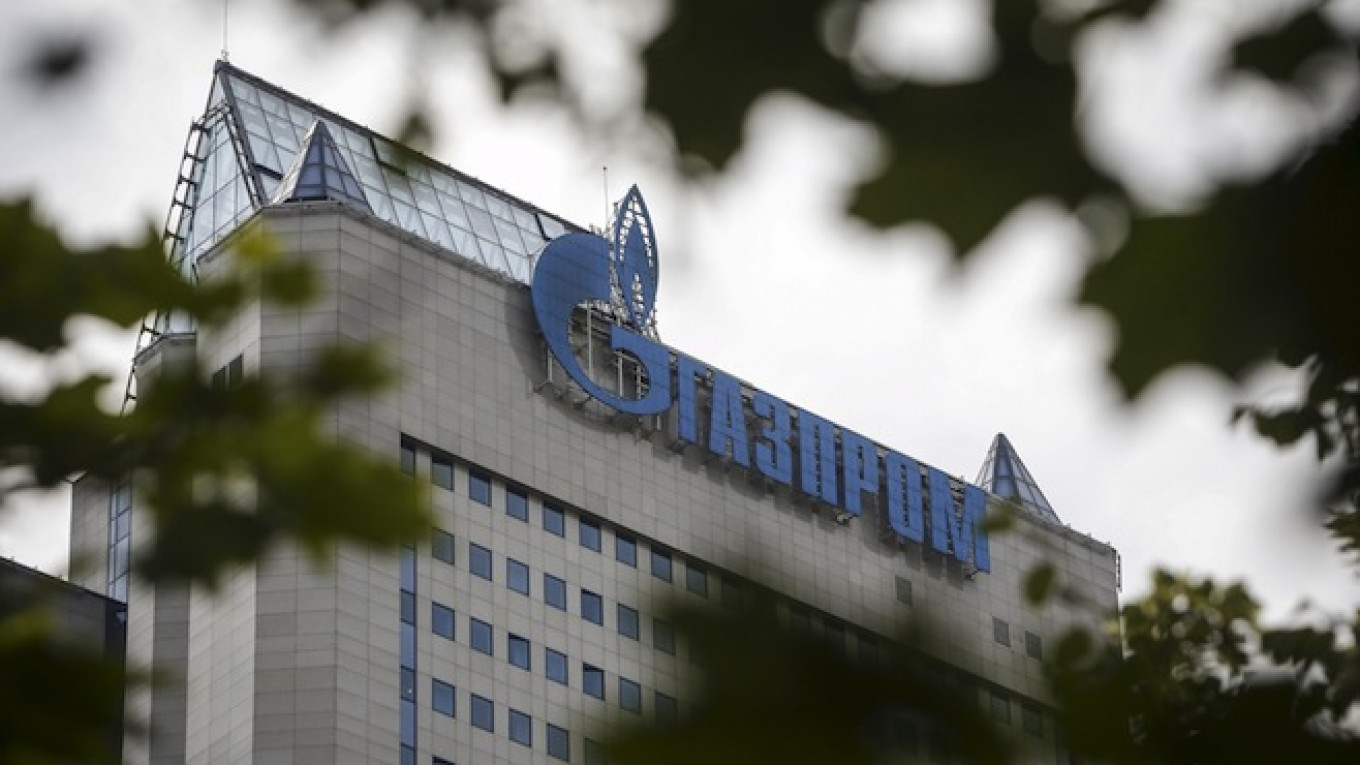MOSCOW / PRAGUE — Russia's plans to drop Ukraine as a route for pumping natural gas to Europe will still leave state-run Gazprom facing about $1 billion in annual transit fees to Slovakia and Bulgaria for years to come, analysts and industry sources say.
Russia wants to circumnavigate Ukraine to pipe its gas to Europe because of pricing disagreements, which at times have led to disruptions in supplies to the European Union, but doing so will come at a cost which some analysts say is too high.
Billions of euros will be needed to build and expand alternative routes, and the route of the existing pipeline means transit fees to Slovakia and Bulgaria will have to be paid by Gazprom even if Russia manages to bypass Ukraine by 2020.
Under the contracts with the two countries, which ship gas on to western and southern Europe respectively, Gazprom will have to pay Slovakia until 2028 and Bulgaria until 2030 regardless of whether they actually ship any gas through them.
The route through Slovakia is key for gas flows to some of Gazprom's biggest clients, Italy and Germany.
"This is the biggest issue — no one knows what to do with this [Slovakia] contract," a Gazprom source said.
Slovakia's Eustream had revenues of 630 million euros ($695 million) last year, down from 697 million euros in 2013, and most of this came from Gazprom, the company's accounts and Reuters calculations show.
Another $100 million, about 90 million euros, was charged by Bulgaria, according to Bulgarian state company Bulgartransgaz. The combined transit fees of both countries were about the same as a quarter of Gazprom's net income last year.
Ukraine's state gas firm, Naftogaz, earned about $2 billion in transit fees from Gazprom last year, according to its reports, equal to about 6 percent of Ukraine's budget revenues.
Geopolitical Concerns
Gazprom's plans to avoid shipping gas through Ukraine — with whom relations have been strained by the overthrow of a Moscow-leaning president, Russia's annexation of Crimea and a separatist uprising in eastern Ukraine — center around building a pipeline to Turkey.
But Russia still has no firm agreement with Ankara on the Turkish Stream project, announced by President Vladimir Putin in December, and it faces opposition from the European Union.
Gazprom, which generates about 8 percent of Russia's gross domestic product, has put costs for the first line of the Turkish Stream at 3.3 billion euros. The pipeline should consist of four lines, each with an annual capacity 15.75 bcm.
Expansion of the Nord Stream pipeline, which goes beneath the Baltic Sea to Germany, agreed last month, is estimated at costing another 9.9 billion euros.
"It is obvious that from the economic point of view this [Turkish Stream and Nord Stream] is unlikely to be reasonable. But it may be viewed as a cost to lower transit risks," said Andrei Polischuk, an analyst with Raiffeisen bank.
Gas rows with Ukraine in the winters of 2005-06 and 2008-09 led to the interruption of Russian gas flows to Europe, Gazprom's key export market where it makes more than half its revenues.
Mikhail Korchemkin, head of East European Gas Analysis consultancy group, said Gazprom spent $43 to ship each 1,000 cubic meters via the Nord Stream last year compared to $33 via Ukraine.
"We think our transit route is the most direct and the cheapest," said Olyona Osmolovska, spokeswoman for Ukraine's Naftogaz.
Some analysts doubt Gazprom will succeed in completely bypassing Ukraine by 2020. It has not yet started laying pipes for Turkish Stream and has canceled a contract with Italy's Saipem to build a link to Turkey.
Gazprom CEO Alexei Miller said last month the company was ready for talks about continuing to use Ukraine as a supply route. Last year, Ukraine shipped almost 60 bcm of Russian gas to Europe — or 40 percent of Gazprom's exports.
"Totally bypassing Ukraine in the time that has been set is doubtful," said Valery Nesterov, an analyst with Sberbank CIB. "We believe that in 5 to 10 years relations with Ukraine will stabilize and some of the transit flows will remain."
A Message from The Moscow Times:
Dear readers,
We are facing unprecedented challenges. Russia's Prosecutor General's Office has designated The Moscow Times as an "undesirable" organization, criminalizing our work and putting our staff at risk of prosecution. This follows our earlier unjust labeling as a "foreign agent."
These actions are direct attempts to silence independent journalism in Russia. The authorities claim our work "discredits the decisions of the Russian leadership." We see things differently: we strive to provide accurate, unbiased reporting on Russia.
We, the journalists of The Moscow Times, refuse to be silenced. But to continue our work, we need your help.
Your support, no matter how small, makes a world of difference. If you can, please support us monthly starting from just $2. It's quick to set up, and every contribution makes a significant impact.
By supporting The Moscow Times, you're defending open, independent journalism in the face of repression. Thank you for standing with us.
Remind me later.






